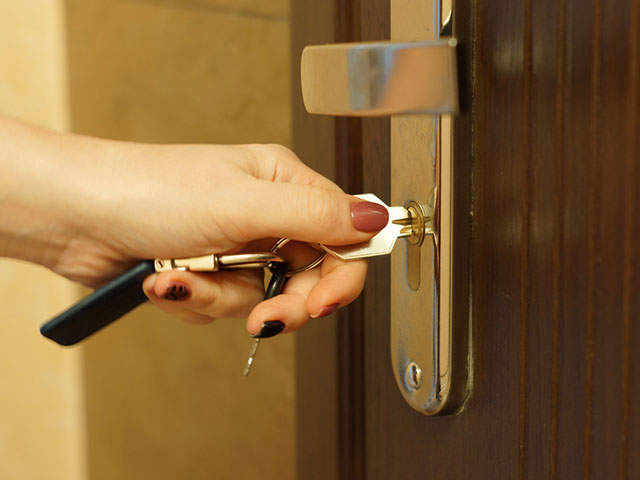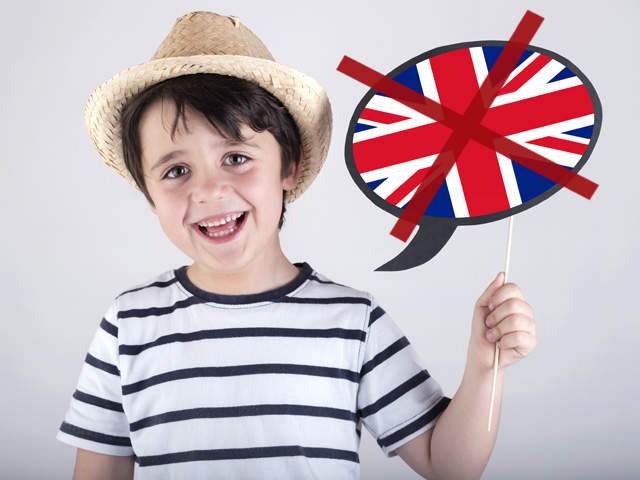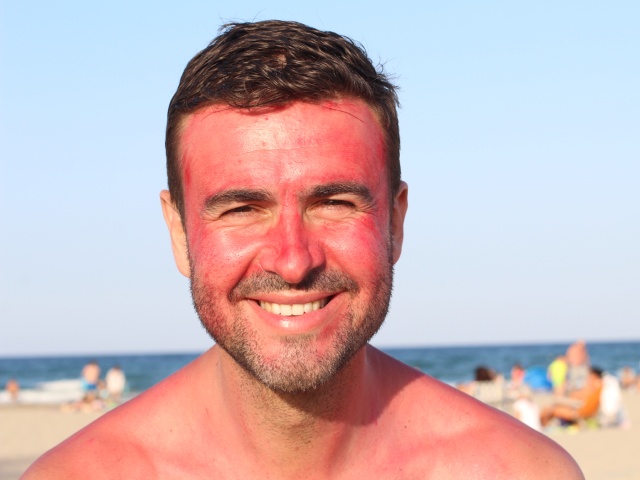Must have done, should have done... (B2)
Past modal verbs (424)
Minulá modální slovesa
Minulá modální slovesa – procvičování:
Na Landigo máme další související lekce:
- Modální slovesa (A2)
- Modální slovesa – opisy (B1)
- Minulý infinitiv (B1)
Porovnejte:
|
John must do it.
|
John to musí udělat. |
|
John must have done it.
|
John to musel udělat. (= Určitě to udělal.) |
Our team can't have won yesterday's game. They must have lost.
| Mluvíme o minulosti: |
|
They can't have won.
|
|
They must have lost.
|


Minulá modální slovesa (past modal verbs) odkazují do minulosti:
|
They can't have won yesterday. (= It's not possible that they won.)
|
|
They must have lost yesterday. (= I'm sure they lost.)
|
COULD, MUST, SHOULD... + minulý infinitiv (= HAVE + třetí tvar slovesa):
|
He must have done it.
|
|
She must have played.
|
|
They must have watched it.
|








Minulá modální slovesa používáme pro vyjádření současného názoru nebo postoje na nějaký minulý děj. Může se např. jednat o možnost, jistotu, nejistotu, lítost apod.:
|
I could have left my phone in the pub.
|
Je možné, že jsem mobil nechal v hospodě. (= možnost) |
|
I must have left it there.
|
Určitě jsem ho tam nechal. (= jistota) |
|
Before leaving the pub, I should have checked to see if it was in my pocket.
|
Před odchodem z hospody jsem se měl podívat, jestli ho mám v kapse. (= litujeme, že se to neudělalo) |
Could/may/might have happened = možná se stalo
Pokud chceme říct, že se něco v minulosti možná stalo, použijeme COULD/MAY/MIGHT + minulý infinitiv:
|
Why is Andy late? – I'm not sure, he could have gotten stuck in traffic.
|
Proč má Andy zpoždění? – Nejsem si jistý, možná uvízl v dopravní zácpě. |
|
Andy may have forgotten about the meeting or he might have overslept.
|
Je možné, že Andy na schůzku zapomněl nebo zaspal. |
COULD vyjadřuje větší pravděpodobnost než MAY/MIGHT.
The newspaper reports at the time said the murderer might have had an accomplice.
|
He might have had an accomplice.
|
|
Maybe he had an accomplice.
|


I've seen loads of horror movies and this one could have been the scariest.
|
This one can have been could have been the scariest.
|
|
Maybe this one was the scariest.
|


Could/might have happened = mohlo se stát (ale nestalo se)
COULD/MIGHT + minulý infinitiv vyjadřuje, že se něco mohlo stát, ale nestalo se:
|
You could have waited for us.
|
Mohl jsi na nás počkat. (= mírné zklamání) |
|
You might have asked at least.
|
Mohl ses alespoň zeptat. (= výčitka) |
|
You could have gotten seriously injured.
|
Naštěstí ses vážně neporanil. (= úleva) |
|
You might have brought them a present.
|
Mohl jsi jim přinést dárek. |
Why didn't David compete? He could have beaten everybody.
| Mohlo se stát, ale nestalo se: |
|
He could have beaten everybody.
|
|
He could have won.
|


The fireworks went off unexpectedly. Someone might have been injured.
| Mohlo se stát, ale nestalo se: |
|
Someone might have been injured.
|
|
Someone could have been injured.
|


Can't/couldn't have happened = určitě se nestalo
Pokud jsme přesvědčeni, že se něco určitě nestalo, nemůže být pravda nebo je to velmi nepravděpodobné, použijeme CAN'T/COULDN'T + minulý infinitiv:
|
I saw your husband on Friday. – It can't have been Alex, he's abroad.
|
V pátek jsem viděla tvého muže. – To nemohl být Alex, on je totiž v zahraničí. |
|
Olivia couldn't have gone home yet. Her coat is here.
|
Olivia ještě určitě nešla domů. Její kabát je tady. |
CAN'T vyjadřuje větší jistotu než COULDN'T.
Must have happened = určitě se stalo
Pokud jsme přesvědčeni o tom, že se něco určitě stalo, musí být pravda nebo je velmi pravděpodobné, použijeme MUST + minulý infinitiv:
|
Where is my cake? – Somebody must have eaten it at night.
|
Kde je můj dort? – Někdo ho v noci určitě snědl. |
|
Their holiday looked amazing. It must have been very expensive.
|
Jejich dovolená vypadala úžasně. Musela být velmi drahá. |
Pouze MUST a CAN'T vyjadřuje, že se něco určitě stalo/nestalo. MUSTN'T a CAN takto obvykle nepoužíváme, výjimkou je MUSTN'T v americké angličtině:
| Určitě se stalo | Určitě se nestalo |
|---|---|
|
It must have been expensive.
|
They can't have been expensive.
|
|
They mustn't have been expensive. (AmE)
|
Nikoliv: It can have been expensive.
The boy can't have understood. I'm certain about it because he doesn't speak English.
| Určitě se nestalo: |
|
He can't have understood.
|
|
I'm certain he didn't understand.
|


I'm quite sure I couldn't have left the window open.
| Menší jistota: |
I'm quite sure. I couldn't have left it open.
|
| Větší jistota: |
I'm absolutely sure. I can't have left it open.
|


The American asked me for directions. He must have taken me for a local.
| Určitě se stalo: |
|
He must have taken me for a local.
|


Thomas can't have done it, he mustn't have stolen the money. He wasn't even at the party!
| Určitě se nestalo: |
|
He can't have done it.
|
|
He mustn't have done it. (AmE)
|
|
He can't have stolen it.
|
|
He mustn't have stolen it. (AmE)
|


Should have happened = mělo se stát (ale nestalo se)
Pomocí SHOULD + minulého infinitivu obvykle vyjadřujeme lítost nebo výčitku, že se nestalo, co se stát mělo, nebo co by bylo správné:
|
My hands are full. I should have taken a shopping cart. (= I didn't do it, it would have been better with a cart.)
|
|
A virus damaged all my files. We should have backed them up. ( = We didn't do it, it would have been a smart thing to do.)
|
|
You should have waited because that car had the right of way. (= You didn't wait, even though it would have been the right thing to do.)
|
Shouldn't have happened = nemělo se stát (ale stalo se)
SHOULDN'T + minulý infinitiv vyjadřuje lítost, že se stalo, co se stát nemělo:
|
I shouldn't have been eating all those sweets at night. (= I regret eating the sweets.)
|
|
You shouldn't have told him that. (= I think it was a bad idea to do it.)
|
|
I shouldn't have bought such a pricey car. (= I regret buying the car, it was a bad idea.)
|
You should have brought an umbrella. I told you it was going to rain.
| Nestalo se, co se stát mělo: |
|
You should have brought it.
|
|
It was a bad idea that you didn't bring it.
|


Starting our own business is something we should have done years ago.
| Nestalo se, co se stát mělo: |
|
We should have done it years ago.
|
|
I regret we didn't do it years ago.
|


The pizza is too greasy. You shouldn't have added lashings of olive oil.
| Stalo se, co se stát nemělo: |
|
You shouldn't have added oil.
|
|
It was a bad idea that you added oil.
|


Needn't have happened = nemuselo se stát (ale stalo se)
NEEDN'T + minulý infinitiv použijeme, když někdo něco udělal, ale až později se dozvěděl, že to bylo zbytečné:
|
Ellen needn't have called me.
|
Ellen mi nemusela volat. (Zavolala, i když to nebylo nutné, to ale Eva nevěděla. = Zavolala zbytečně.) |
|
They needn't have come to work on Saturday.
|
V sobotu do práce nemuseli chodit. (Přišli do práce, i když to nebylo nutné, to ale nevěděli. = Přišli zbytečně.) |
NEEDN'T + minulý infinitiv použijeme také, když se něco stalo zbytečně:
|
Chris needn't have died.
|
Chris nemusel zemřít. (= Zemřel zbytečně.) |
I needn't have packed my flip-flops. I didn't wear them at all.
| Udělat něco, i když to bylo zbytečné: |
|
I needn't have packed them.
|
|
I packed them. It was unnecessary.
|


We needn't have come so early. There are no decent waves yet.
| Udělat něco, i když to bylo zbytečné: |
|
We needn't have come early.
|
|
We came early. It was pointless.
|


If John had been strapped in, his injuries needn't have been fatal.
| Stalo se zbytečně: |
|
His injuries needn't have been fatal.
|


Would have happened = stalo by se
Pokud mluvíme o minulosti, která se mohla stát, ale nestala se, použijeme WOULD + minulý infinitiv:
|
Adam would have found a better job easily, but he was too lazy for that. (...so he didn't find a better job.)
|
Adam by si snadno našel lepší práci, ale na to byl příliš líný. |
|
I would have travelled more when I was younger. Unfortunately, I didn't have the time.
|
Byl bych cestoval víc, když jsem byl mladší. Bohužel jsem na to neměl čas. |
|
You would have slept better if you hadn't drunk so much coffee.
|
Byl bys spal lépe, kdybys nevypil tolik kávy. |
WOULD HAVE má někdy podobný význam jako COULD HAVE a MIGHT HAVE. WOULD vyjadřuje větší jistotu než COULD/MIGHT:
|
If you had asked her out, she would have said yes. (= 100% certain)
|
|
If you had asked her out, she could have said yes. (= a possibility)
|
|
If you had asked her out, she might have said yes. (= a slight possibility)
|
I would have gone by train, but everybody else preferred to fly.
| Mohlo se stát, ale nestalo se: |
|
I would have gone by train.
|


Without the map, we would have gotten lost.
| Určitě by se stalo: |
Without it, we would have gotten lost.
|
| Možná by se stalo: |
Without it, we could have gotten lost.
|
|
Without it, we might have gotten lost.
|


Must've, could've, might've...
V hovorové angličtině se HAVE často zkracuje:
| Plný tvar | Hovorové |
|---|---|
|
must have
|
must've
|
|
could have
|
could've
|
|
might have
|
might've
|
|
should have
|
should've
|
|
would have
|
would've
|
| Velmi hovorové |
|---|
|
musta
|
|
coulda
|
|
mighta
|
|
shoulda
|
|
woulda
|
Jeff must've left his sunscreen at home. He should've asked me to lend him mine.
|
He must have left it there.
|
|
He must've left it there.
|
|
He musta left it there.
|


You could've called me. If I had known you were coming, I would've cleaned up a little.
|
You could have called.
|
|
You could've called.
|
|
You coulda called.
|


Minulá modální slovesa – shrnutí:
| He could/may/might have done it. | Možná to udělal. |
| He could/might have done it. | Mohl to udělat (ale neudělal). |
| He can't/couldn't have done it. | Určitě to neudělal. |
| He mustn't have done it. (AmE) | |
| He must have done it. | Určitě to udělal. |
| He should have done it. | Měl to udělat (ale neudělal). |
| He shouldn't have done it. | Neměl to udělat (ale udělal). |
| He needn't have done it. | Nemusel to udělat (ale udělal to, protože nevěděl, že se to nemusí udělat). |
| He would have done it. | Byl by to udělal (= neudělal to). |
Doporučujeme si procvičit minulá modální slovesa (past modal verbs) v našich cvičeních.
